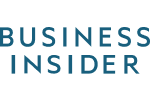Beware of Scams Involving Fake Checks
The Financial Industry Regulatory Authority (FINRA) has issued an Alert warning individuals about “modeling” and “mystery shopper” scams. These scams involve checks that appear to be from legitimate companies, but turn out to be counterfeit. In summary, both scams involve an authentic-appearing check that is sent to the individual. This check often has the name of a real company with both account and routing numbers. The scammer instructs the individual to deposit the check into their personal bank account and then to transfer part of the money to another person. In a few days, the individual learns from the bank that the check was counterfeit. This individual is then liable for the amount of money that was withdrawn, which is often several thousand dollars. This becomes a very expensive lesson learned for the individual scammed. Additionally, more than likely, it would be impossible to track down the scammers to recover the loss.
The “mystery shopping” scam leads individuals responding to a classified add to believe that they have been hired as a mystery shopper to “evaluate the services of money transfer companies, such as Money-Gram.” The victims are then sent checks that seem to be from real companies, including FINRA. They are then asked to deposit the money in their personal account and then told to withdraw a substantial portion of the money and then wire it to another individual. The remainder of the money, which is generally a few hundred dollars, goes to the victim as compensation for being a mystery shopper. Later, the victim is notified by their bank that the check is counterfeit and the bank seeks reimbursement of the money withdrawn from the victim.
The “modeling” scam convinces victims that they are being hired to model. The victim is sent an email with instructions on what they are to do. A counterfeit check is sent to the victim “model” and then they are told to cash the check and wire the majority of the money to another individual. The victim is told that the remainder of the money is their compensation for being a “model.” In the same manner as the “mystery shopper” scam, the bank then notifies the victim that the check is not legitimate and the victim is then liable for the amount of money withdrawn.
Also, this scam also takes place on an individual basis, with individuals running the same scam on sellers on such websites as Craigslist. In this instance, the individual wants to purchase something from you and send you a check for an amount greater than the amount of what is being sold. The seller is then asked to send money left over from the purchase either back to them or to another individual. The check here also turns out to be counterfeit.
FINRA has warned that it is very difficult to determine whether a check is counterfeit. Therefore, they “(urge) consumers to be cautious if someone they don’t know asks them to cash a check and then transfer the money.” Further, they point out that “no legitimate company will overpay you and ask that you wire the difference back to the company or to some third party.”
FINRA does suggest some tips to avoid these scams. Prior to cashing any check you are sent by a seemingly legitimate company, call the company directly to verify the check. However, make sure that you do not use any telephone number on the check, you need to obtain the number via directory assistance. Further, look out for emails that are filled with typographical and grammatical errors. This could also be a red flag that the email is a scam. In addition, compare the name of the company from the posting to the name of the check. If the names don’t match, this is also a red flag. Finally, do not be pressured to deposit the check and wire the money quickly. Wait until the bank confirms that the check clears before you withdraw or transfer any money. Remember you will be liable to the bank for any amount withdrawn on a counterfeit check.
In summary, beware of any offers which seem to go to be true. Further, look out for red flags and question any offer prior to agreeing to perform any task involving wiring money to another unknown individual. Ask yourself why! Why is this company giving me money to cash a check and then wire the majority of the money to someone else?








